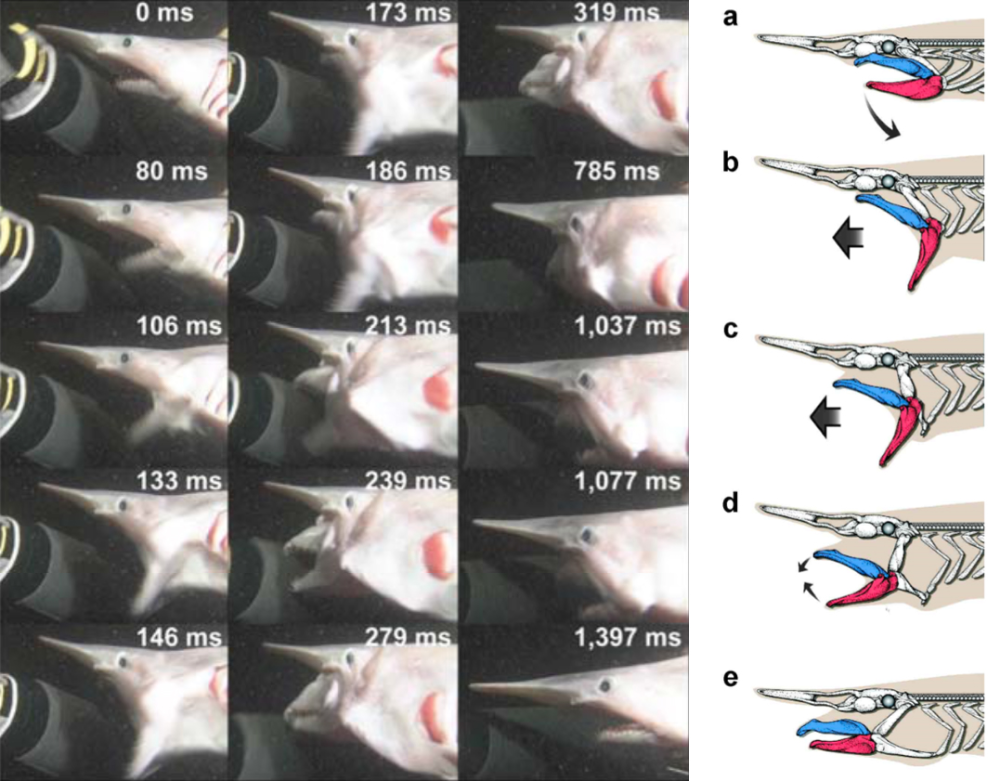Strap in kids, we’re going full goblin mode with one of the world’s weirdest sharks: the goblin shark. Known to science as Mitsukurina owstoni, it was first discovered in 1898, deep in the waters off Japan. Today, they still lurk in the darkest pockets of the ocean at depths of 250 to over 900 meters (820 to over 2,950 feet). A spooky place known as the benthopelagic zone.
The rest of this article is behind a paywall. Please sign in or subscribe to access the full content.
Down here, you’ll find deep-sea organisms like fish, cephalopods, and crustaceans doing their best to stay alive, but it can all change in the blink of an eye when the goblin shark is about. You see, these butt-ugly sharks have something of a superpower.
The wonders of the goblin shark mouth
The goblin shark has what’s thought to be the fastest jaws in the ocean, certainly among sharks. It can project them out of its face, firing like a slingshot that extends between 8.6 to 9.4 percent of its total body length. This means it can snatch prey that would have otherwise been just out of reach.
It’s a highly effective hunting strategy, one that occurs at speeds of roughly 3.1 meters (10 feet) per second. Even fast-moving prey doesn’t stand a chance despite goblin sharks having slow swimming speeds.

Video stills of a goblin shark eating show its protruding jaws (elapsed time is shown in milliseconds).
Image credit: NHK Illustrations: Hokkaido University
A 2016 study analyzed world-first footage of the goblin shark feeding, unraveling a century-old mystery as to how these wacky jaws work. They named its curious approach to dinner “slingshot feeding”, concluding it was the fastest speed recorded in any fish. It also far outranks other sharks in terms of the length the jaws extend out of its face. Truly a goblin king worthy of the goblin crown.
Goblin shark eating
This protusible mouth is a feat of shark engineering, but it’s not the only trick up a goblin shark’s snoot. They have incredibly sensitive snouts lined with specialized electroreceptors called ampullae of Lorenzini. A lot of sharks have these, but the density of these sensory pores on a goblin shark’s snout is exceptionally concentrated.
These organs detect faint electrical signals from nearby animals, such as those produced by heartbeats or nervous system activity. This has made them experts at feeding in the deep where their vision is limited. Once they’ve locked onto their prey, a double set of ligaments at the mandibular joints allows their open jaws to slingshot outwards. Curiously, they also have to open and close their mouths during jaw retraction, though nobody’s quite sure why.
When retracted, the jaws sit beneath the shark’s eyes. This is why in some pictures and videos, goblin sharks look like relatively normal sharks, and in others, they’ve gone full goblin mode.
It’s all adding up to sound pretty terrible, right? Time to cancel those surfing lessons, except there’s never been a human fatality linked to a goblin shark ever, and with good reason. As mentioned, goblin sharks are deep-sea specialists and therefore our paths don’t cross. So, you’re just out of reach from the goblin shark… for now.
Source Link: The Goblin Shark Has The Fastest Jaws In The Ocean, Firing Like A Slingshot At Speeds Of 3.1-Meters-Per-Second